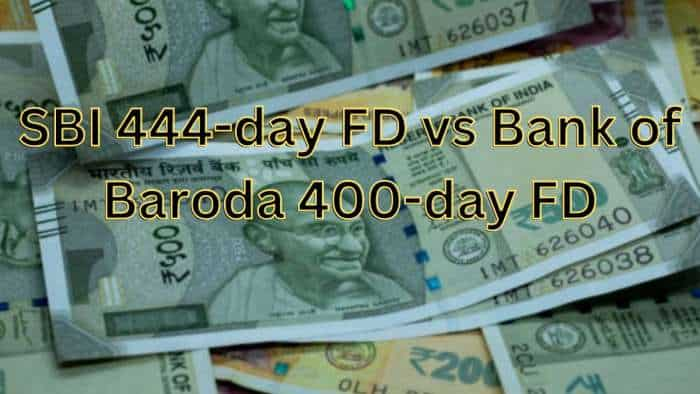Budget 2019: Your benefits from fixed deposits, savings to rise? Dear NDA govt, do make bank deposits tax free
Budget 2019: For banks, deposits are seen as an expenditure as they pay interest to customers, on the other hand, lending is their way to earnings as they receive interest from customers.

Budget 2019: There has emerged a strong possibility that government may look into providing some tax relief for your deposits in bank. For banks, the pressure arises from government’s small savings schemes, which forced the lenders to aggressively hike deposit rates beyond their ability to keep up with the Centre’s investment tools. Currently, there is a massive a gap between interest rates offered by banks on their deposits and government on their small saving schemes. For banks, deposits are seen as an expenditure as they pay interest to customers, on the other hand, lending is their way to earnings as they receive interest from customers.
According to SBI, the gap between small saving schemes interest rate (average of PPF and Sukanya Samridhi accounts rate) and average bank term deposit (>1 year) still remains around 98 bps.
Government has hiked small saving schemes interest rate quite impressively, which makes them a better option for investment than what banks are offering.
SBI explains, that this has made it difficult for banks to reduce deposit rates. Interestingly, in the last few months, with bank deposit growth significantly lagging bank credit growth, banks have been increasing deposit rates to protect the possibility of deposit flight from banks.
The banks' aggregate deposits have witnessed a growth rate of 9.9% worth Rs 10.85 lakh crore and advances have surged by 14.5% valuing Rs 11.85 lakh crore as on fortnight January 04, 2019.
SBI believes it is imperative that, the government make bank deposits attractive by making them tax free.
Watch this Zee Business video here:
Currently, all interest earned from fixed deposits and recurring deposits are taxable, however, on interest received on savings account and post office deposits there are certain claims that are allowed in Income Tax Act. A customer must show income from these deposits in their Income Tax Return (ITR) filing under section of ‘income from other sources’.
In case of fixed deposits, a tax deducted at source (TDS) is levied by banks on interest income which a customer earns. A bank is needed to deduct tax when interest income from deposits held in all bank branches cumulatively is more than Rs 10,000. If a PAN detail is available, then a 10% TDS is deducted, however, if this identity proof is not available then 20% TDS is charged.
Meanwhile, only Rs 10,000 is allowed for tax claim on interest income from savings account under section 80TTA of IT Act. For instance, if your interest income in savings account comes at Rs 15,000 in a year, then only Rs 10,000 can be claimed as tax benefit, remaining Rs 5,000 will be taxable.
Hence, if your deposits become tax-free, then you will be able to take home massive amount on your savings.
Get Latest Business News, Stock Market Updates and Videos; Check your tax outgo through Income Tax Calculator and save money through our Personal Finance coverage. Check Business Breaking News Live on Zee Business Twitter and Facebook. Subscribe on YouTube.
RECOMMENDED STORIES

SBI Latest FD Rates: This is what you can get on Rs 10 lakh investment in 1-year, 3-year, and 5-year tenures

Reduce Home Loan EMI vs Reduce Tenure: Which prepayment option can help save Rs 55 lakh, & 7 years and 9 months on Rs 80 lakh, 30-year loan

Top 7 Small Cap Mutual Funds With Best SIP Returns in 10 Years: Rs 11,111 monthly SIP investment in No 1 fund has sprung to Rs 57,30,613; know about others too
06:33 AM IST








 Social Stock Exchange: What is it? Will it benefit social enterprises in India?
Social Stock Exchange: What is it? Will it benefit social enterprises in India? Housing for all by 2022: Outlook positive for affordable housing in the next 3 years
Housing for all by 2022: Outlook positive for affordable housing in the next 3 years Hit by massive trouble, NBFC sector gets a big boost; here is how
Hit by massive trouble, NBFC sector gets a big boost; here is how Investment tips: These 10 stocks can help your wealth grow in July 2019
Investment tips: These 10 stocks can help your wealth grow in July 2019  Sensex crash! Rs 5.61 lakh crore of investor wealth wiped out in 2 days - 8 reasons why
Sensex crash! Rs 5.61 lakh crore of investor wealth wiped out in 2 days - 8 reasons why